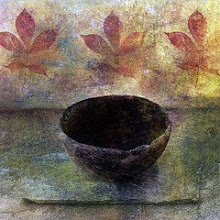
In my experience, people who say Buddhism is a philosophy and not a religion usually mean it as a compliment. They are trying to say, I think, that Buddhism is something other than they believe religion to be.
Buddhism -- some Buddhism, anyway -- is a practice of contemplation and inquiry that doesn't depend on belief in God or a soul or anything supernatural. Therefore, the theory goes, it can't be a religion.
Head Boxes
In many ways, the "religion versus philosophy" argument is an artificial one. The neat separation between religion and philosophy we insist on today didn't exist in western civilization until the 18th century or so, and there never was such a separation in eastern civilization. To insist that Buddhism must be one thing and not the other amounts to forcing an ancient product into modern packaging.
In Buddhism, this sort of conceptual packaging is considered to be a barrier to enlightenment. Without realizing it we use prefabricated concepts about ourselves and the world around us to organize and interpret what we learn and experience. One of the functions of Buddhist practice is to sweep away all the artificial filing cabinets in our heads so that we see the world as-it-is.
In the same way, arguing about whether Buddhism is a philosophy or a religion isn't an argument about Buddhism. It's an argument about our biases regarding philosophy and religion. Buddhism is what it is.
Transcendence
It's said that the only way to understand Buddhism is to practice it. Through practice, one perceives its transformative power. A Buddhism that remains in the realm of concepts and ideas is not Buddhism. The robes, ritual and other trappings of religion are not a corruption of Buddhism, as some imagine, but expressions of it
There's a Zen story in which a professor visited a Japanese master to inquire about Zen. The master served tea. When the visitor's cup was full, the master kept pouring. Tea spilled out of the cup and over the table.
"The cup is full!" said the professor. "No more will go in!"
"Like this cup," said the master, "You are full of your own opinions and speculations. How can I show you Zen unless you first empty your cup?"
If you want to understand Buddhism, empty your cup.

